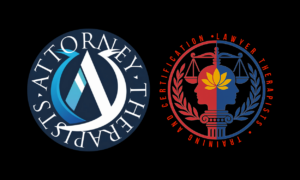In the legal profession, interactions with opposing counsel are inevitable. While many of these interactions are collegial, there are instances where opposing counsel may engage in unprofessional or combative behavior. Such situations test an attorney’s ability to remain composed, professional, and effective in their representation of clients.
Maintaining Professionalism Under Pressure
Professionalism is paramount when dealing with difficult opposing counsel. Attorneys must prioritize clear communication, adherence to ethical standards, and a commitment to civility, regardless of the provocation. These principles not only reflect well on the attorney but also strengthen their credibility in the eyes of clients, colleagues, and the judiciary.
Strategies for Managing Conflict
Attorneys can employ several strategies to navigate conflicts with difficult opposing counsel:
Focus on the Issues: Keep discussions centered on the legal and factual issues of the case, avoiding personal attacks or emotional responses.
Prepare Thoroughly: Confidence rooted in preparation can mitigate the impact of antagonistic tactics.
Set Boundaries: Clearly articulate professional expectations and enforce them consistently.
Document Interactions: Maintain a record of communications to address potential disputes effectively and protect against misconduct.
Preserving Mental Resilience
Managing interactions with difficult opposing counsel can take a toll on an attorney’s mental health. Strategies for maintaining resilience include:
Practice Mindfulness: Techniques such as deep breathing and meditation can help attorneys remain calm and focused.
Seek Peer Support: Engaging with trusted colleagues or mentors can provide valuable perspective and guidance.
Limit Exposure: When possible, minimize unnecessary interactions with difficult counsel to reduce stress.
Engage in Self-Care: Regular exercise, healthy eating, and sufficient rest are essential for maintaining mental clarity and energy.
Leveraging Ethical Resources
When opposing counsel’s behavior crosses ethical boundaries, attorneys should not hesitate to consult professional resources. Reporting unprofessional conduct to the appropriate bar association or seeking guidance from ethics committees can ensure accountability and uphold the integrity of the legal profession.
Conclusion
Interactions with difficult opposing counsel are an unavoidable aspect of legal practice. By maintaining professionalism, employing effective conflict management strategies, and prioritizing mental health, attorneys can navigate these challenges successfully. At AttorneyTherapists.com, we are dedicated to providing attorneys with the tools and resources needed to thrive in even the most challenging professional circumstances.
For more resources and insights, visit AttorneyTherapists.com.









